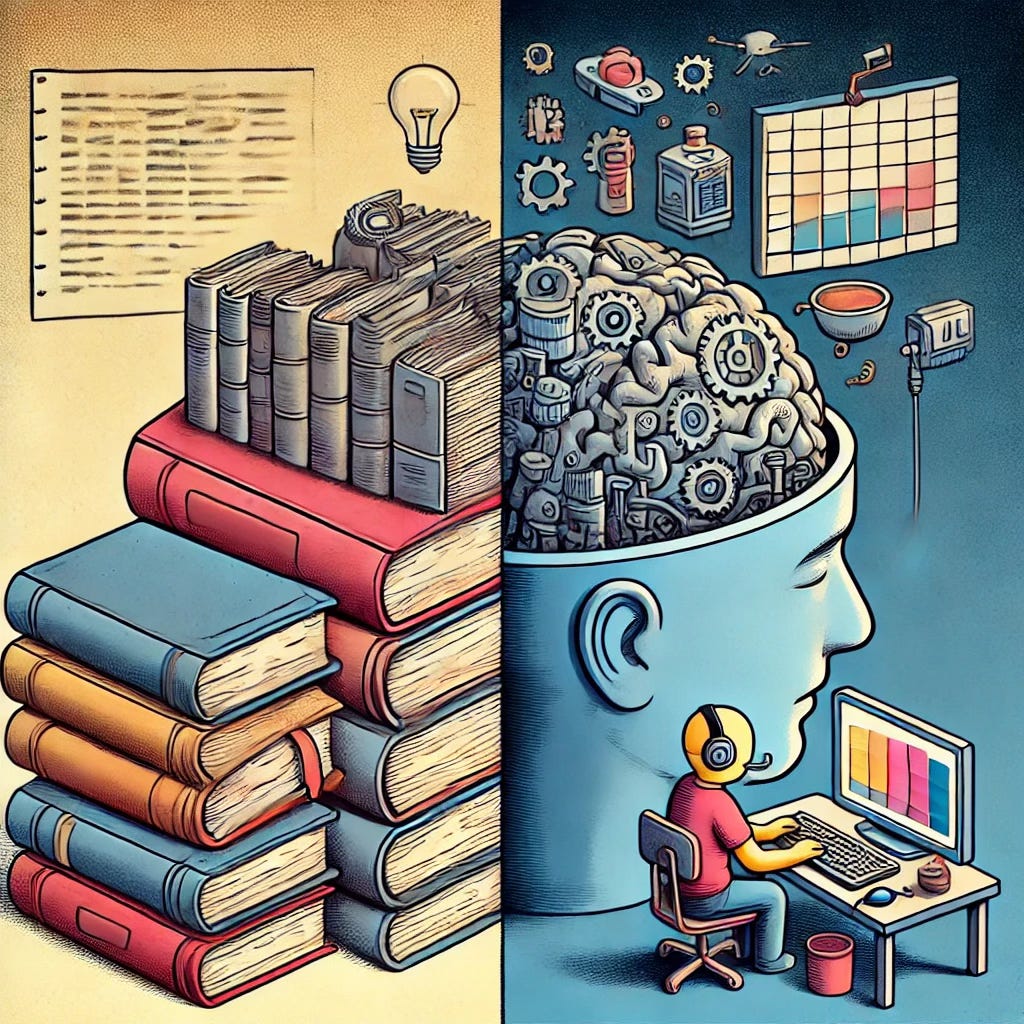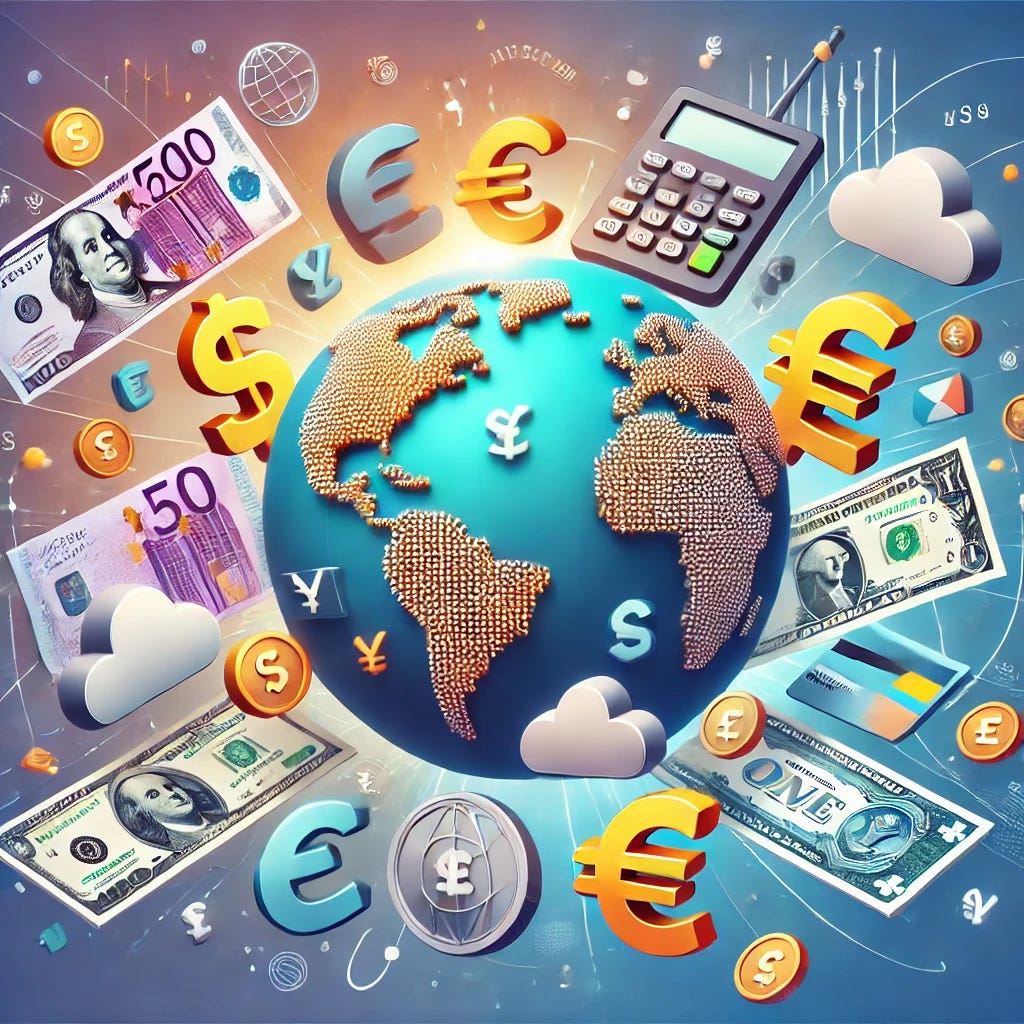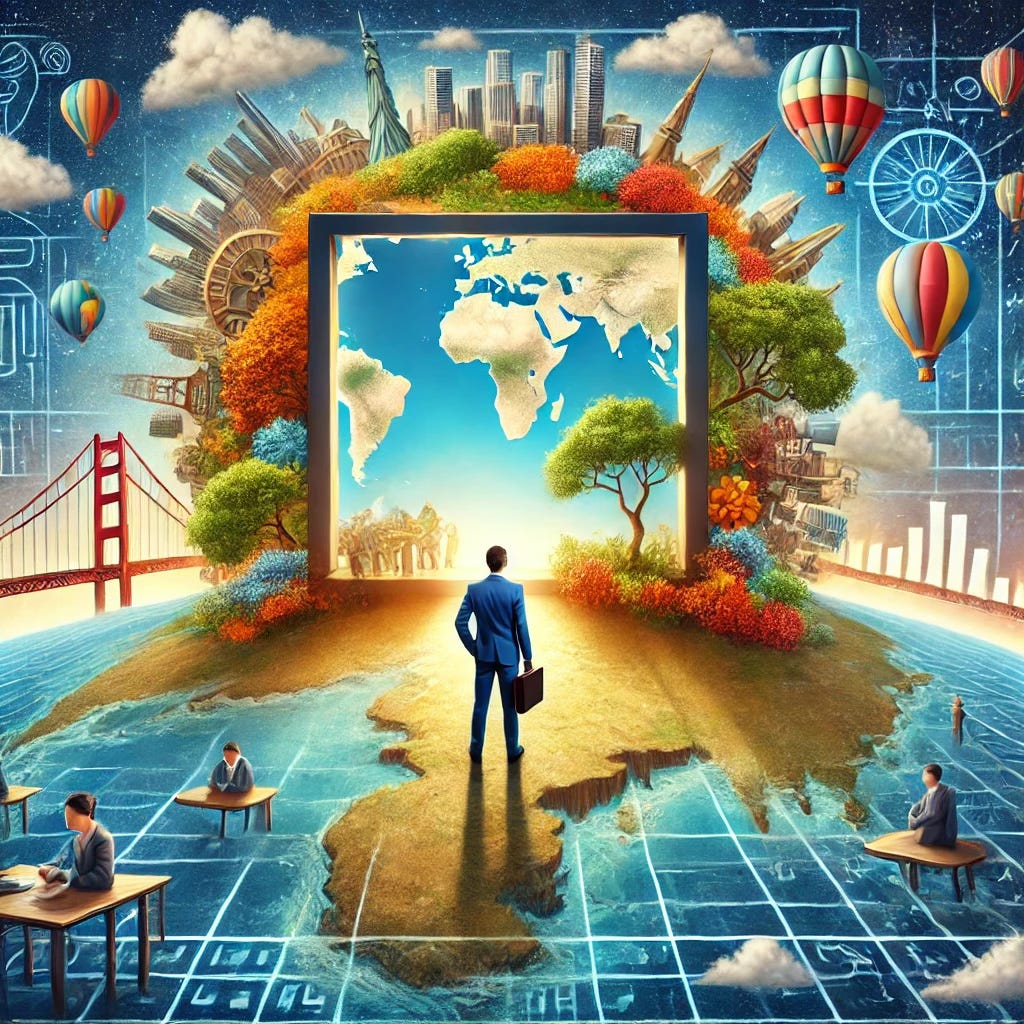Why Monocountrism Is Holding You Back
And How to Break Free
Are you part of the majority of people who are born in a country, study and graduate in that country, make their career in that country, marry in that country, raise their children in that country, retire in that country and die in that country, and who probably is also only fluent in the language of that country ?
If yes, you are a mono-country person.
Nothing to be ashamed of, but there are many blind spots that you have, and this situation prevents you from taking advantage of all the opportunities available to you.
Read on to discover them.
Summary of the previous episodes
The nation-states are at a pivotal point in their existence. As we saw in the previous series, the Internet and globalization are shaking their foundations. Their finances and prospects are more fragile than ever. Tempted by dystopian surveillance technologies, they risk undermining their legitimacy (for democracies) or reinforcing their autocratic power (for others).
Because 1984 has definitely become technically possible.
The situation is about to get worse. Freed from the constraint of having to be somewhere, citizens will increasingly choose the best jurisdiction for them and leave. This will have a major impact on national finances, which are already in the red. More and more states will try to hold back would-be movers, to hold you back, or to force them to pay taxes even when they're no longer there.
More fundamentally, Leviathan-Internet is overtaking Leviathan-State, just as Leviathan-State overtook Leviathan-Church during the Renaissance. Pledging allegiance to Leviathan-State today is therefore the equivalent of pledging allegiance to Leviathan-Church in 1600, when its power, undermined by the printing press, Protestantism and the rise of absolutism, is in decline.
And with the acceleration of technological progress, disruptions that used to take centuries to accomplish can happen much faster today.
How can we make the most of this new world and ensure that, whatever path our country of origin chooses, we maximize our freedom?
Let's take a look at step by step, from the simplest to the most complex .
The basic step to thrive in this new world
The very first and most important step is to stop being a mono-country if you still are one.
If you remain a mono-country, the essence of what I set out in these articles will pass over your head1 : you may have a good theoretical understanding of it, but you won't understand it in your gut, and, in the end, like a lot of theoretical knowledge, you will end up forgetting the gist of it.
Because: what percentage of your college courses do you remember? If you were to take an exam on these subjects today, what mark would you get? Conversely, how well have you mastered the knowledge you've turned into skills by putting them into practice, over and over again?
Why living in one country is limiting your potential
Monocountries have two important characteristics that prevent them from taking full advantage of the Internet Leviathan:
1) Blind spots
Imagine someone who has only known his or her small village of 500 inhabitants (including 300 sheep), coming to live for the first time in an international metropolis of several million inhabitants .
This person suddenly discovers a range of opinions, intelligences, cultures, arts, nationalities, sensations and activities which, in its intensity and variety, completely overwhelms anything he or she has ever known before.
It's exactly the same difference between a mono-country and a multi-country.
2) The absence of a benchmark
Imagine someone who has spent their whole life in a communist country where, every day, you have to queue for hours to get the basics. Products of which you have only one variety, because there are no others. All you have to do is pray that this variety is of good quality!
No alternative anyway.
Then this country opens up to capitalism. You are amazed to discover a modern supermarket. Thousands of products, an incredible variety await you. If one product doesn't suit you, dozens of others are at your fingertips, from the most affordable entry-level to the most expensive and prestigious versions.
And the icing on the cake? You don't have to queue, at least not as long as you used to. As the saying goes: "Communism: you wait in line to get your bread. Capitalism: the bread waits in line for you."
That's exactly what it feels like to go from single-country to multi-country, with the freedom to choose from dozens of jurisdictions vying for your attention.
Common limiting beliefs of monocountries
From these blind spots and lack of a point of comparison come many beliefs and characteristics, big and small, that are common to many single-country people, and hold them back. Here's a list of those I've seen most commonly:
Believing that going to live in a country obliges you to convert the money you earn into that country's currency
Fact: it's possible to open accounts in dollars, euros and other “good” currencies in a huge number of countries. In fact, I've yet to find a country where you can't open an account in euros or dollars (they must exist).
Many Fintech2 offer multi-currency accounts and cards for both individuals and businesses.
So there's no need to undergo forced conversion into a strange currency.
A greater propensity than multi-country people to repeat what they've been told without checking, and thus to be manipulated by their government
An example I know well: in France, the widespread belief among mono-country people that Social Security is the best healthcare system in the world.
As I mentioned earlier, if you've never tested elsewhere and haven't done any in-depth research, where does your opinion come from?
Have you done any real research or comparison? Or are you just repeating what you've been told?
An erroneous perception of their state's power in an international context
Many mono-countries imagine, often unconsciously, that the overwhelming power their state wields over its territory extends identically internationally, without understanding that, without disappearing altogether, it is strongly constrained, for all the reasons we have seen in this blog.
If they are entrepreneurs, they believe that the state will control or prosecute their foreign competitors as vigorously as it does them.
After all, these competitors are taxed less, so it's unfair competition, isn't it?
But in reality, they're the ones more likely to be audited and prosecuted. Having everything in the same country, they considerably increase their exchange surface with the authorities.
A lack of understanding of international cooperation mechanisms and their cost/benefit ratio, which is very unfavourable to States.
That which means they're only used for the "big fish", or to make examples. More on this later.
We examined it in this article too :
Overestimating the difficulties of living abroad
Single-country people often believe that living abroad is extremely complicated, whether in terms of language, culture or adaptation. In reality, many countries offer a welcoming environment for expatriates, with dedicated infrastructures to facilitate their integration, well-established expatriate communities, and often widespread use of English as the language of communication.
Limited awareness of international opportunities
Mono-country people tend to see professional and personal opportunities as limited to their own country.
They don't realize that the world is full of diverse possibilities, and that by definition they'll have more choices by looking at the whole world rather than just a piece of it!
Over-reliance on local media
Monocountries tend to get their information mainly, if not exclusively, from local media, in which mostly single-country people work, which may have a nationalist bias or be less diverse in their perspectives.
This limits their understanding of international issues and the diversity of opinions and lifestyles that exist in other countries.
Misperceptions about healthcare systems abroad
Mono-countries often have a biased or limited perception of foreign healthcare systems). This belief often stems from a lack of information, or from the influence of discourses that glorify the national system while criticizing foreign systems.
In reality, many countries have high-performing healthcare systems that offer quality care, often at lower costs or with additional benefits compared to what mono-countries experience.
For example, some countries have universal healthcare systems that cover the entire population without exorbitant costs, like the UK, while others combine public and private insurance to offer flexible, accessible care, like Switzerland.
What's more, the quality of care in certain countries is often far superior to popular belief. Modern medical infrastructures, cutting-edge technologies and highly qualified healthcare professionals are present in many countries around the world.
Destinations such as Thailand3 , Turkey4 , Mexico5 and even India6 are renowned for the excellent value for money of their medical services, attracting international patients for both generic and specialist treatments, with hospitals explicitly offering "medical tourism" services compre n ant often complete care from arrival at the airport, including translator, for a total cost well below that of the country of departure.
As for Dubai, where I live, the quality of care is absolutely exceptional, as is the quality of service in general. VIP services in hospitals, with immediate care, virtually no paperwork, no waiting, and coffee with a smile? Check.
For example, my private health insurance is valid throughout the world (apart from the USA), covers me for up to 1 million euros per year, for a monthly cost of €154 per month, with a €0 deductible. That's infinitely less than what the Sécu in France, or even the British healthcare system, would have cost me.
How to get rid of these beliefs
There are no three thousand solutions: you have to start comparing what other countries have to offer, by going and living there. Going to Club Med is not enough.
If you can't, it's because you're too attached to a geographical location, whether out of emotion or necessity.
So let's see how you can escape.
Coming soon
In the next article, we’ll see how you can become a multi-country person to enhance your freedom and your opportunities.
Stay tuned ! In the meantime, feel free to follow Disruptive Horizons on Twitter and Linkedin, and join the tribe of Intelligent Rebels by subscribing to the newsletter :
Well done for hanging in there! :)
Neo-banks that often offer a modern web interface and much cheaper services than traditional banks, such as Wise, Revolut, N26, etc.
Steve Finch, "Thailand top destination for medical tourists", Canadian Medical Association Journal, 2014.
Cyprien Tardieu, "Grâce au tourisme médical, ce pays est en passe de détrôner la France", 2023.
Especially for Americans: Anmol Motwani, "Medical Tourism Soars In Mexico", Mexico Business News, 2023.
Harsimarbir Singh, "India eyes to be a huge medical tourism hub in coming years", The Times of India, 2022







